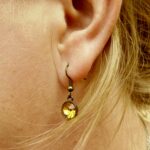Lonely… or at Risk?
You’ve probably felt it—that quiet ache of disconnection. Maybe it’s the long stretch between playdates. Or the silence after the grandkids leave. But what if that feeling of loneliness isn’t just emotional… what if it’s actually harming your health?
In a powerful public warning, U.S. Surgeon General Dr. Vivek Murthy declared loneliness a public health crisis, comparing its health impact to smoking 15 cigarettes a day. That’s not just dramatic—it’s backed by a growing body of research. And it’s affecting people across every age group, from young parents raising kids in isolation to older adults living alone.
This isn’t just a mental health issue. It’s a medical emergency.
The Health Effects of Disconnection
Loneliness does more than tug at your heart—it can literally strain it. Studies have found that chronic social isolation increases the risk of:
- Heart disease
- Dementia
- Stroke
- Anxiety and depression
- Early death
In fact, a 2023 advisory from the Surgeon General revealed that lacking social connection poses a greater risk to health than obesity or physical inactivity. One study showed that long-term loneliness can raise the risk of premature death by nearly 30%.
It’s a quiet crisis, but a deadly one.
Why Modern Life Makes It Worse
So why now? Why are we, as a nation, more lonely than ever?
Dr. Murthy points to several modern factors fueling the crisis:
- Technology: Social media offers the illusion of connection, but often deepens feelings of inadequacy and isolation.
- Remote work and parenting: Many moms report feeling more alone than ever, even while managing nonstop schedules.
- Suburban sprawl: Fewer walkable neighborhoods and community spaces mean fewer chances for spontaneous interaction.
- Cultural stigma: Admitting you’re lonely still feels taboo for many, especially older men and new mothers.
The COVID-19 pandemic made it worse—but it didn’t start the problem.
What Can Be Done (and Who’s Stepping Up)
The good news? Loneliness is preventable—and reversible.
The Surgeon General’s report calls for systemic changes, including:
- More “third spaces” like libraries, parks, and community centers
- Connection-building programs in schools, workplaces, and senior housing
- Prescribing social connection the same way we prescribe physical therapy or nutrition
And at the personal level, here are small steps with big impact:
- Say yes to neighborhood gatherings or parenting groups, even when it feels awkward
- Limit passive scrolling and prioritize real-world connection
- Call, don’t just text—especially with older friends and family
- Join something: a walking club, volunteer group, or class
For parents feeling isolated and seniors missing regular interaction, connection isn’t a luxury—it’s essential care.
The Bottom Line
Loneliness is more than a feeling. It’s a serious health risk. But unlike some health challenges, this one has a cure: people.
By treating social connection like the necessity it is—and building communities that support it—we can turn the tide on this quiet epidemic.








